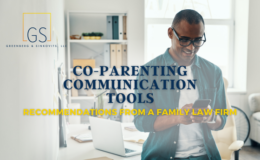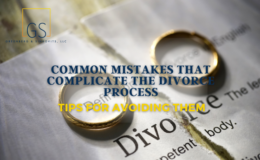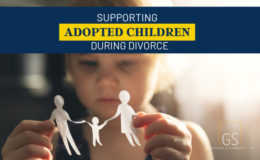The holidays often bring a swirl of emotions, especially if you’re navigating them alone or without your children for the first time post-divorce. For some, this “solo” season may feel heavy with sadness or loneliness, while for others, it might bring an unexpected sense of freedom, joy, and relief. Every feeling—no matter where it falls on that spectrum—is completely valid. What’s likely true for everyone in this new chapter is that the holidays will look and feel different than before.
As a family law firm, we understand these transitions on a deep level. Here are some of our top insights and practical tips to help newly divorced clients celebrate the holiday season ahead.
- Give Yourself Permission to Feel
There’s no “right” way to experience the holidays. It’s normal to feel a range of emotions during the holidays—especially if this is your first season celebrating without your former partner or, perhaps, without your children. And it’s also normal to feel joy, peace, or even a sense of relief post-divorce. Don’t hold back from embracing these emotions and allow yourself to feel them without judgment.
- Avoid Comparisons
Social media, holiday movies, and holiday cards can present idealized images of perfect families. It’s easy to fall into the trap of comparing your current reality to what others appear to be experiencing. Remember, these images don’t tell the full story. Resist the urge to compare!
- Embrace New Traditions
If your old traditions no longer suit your situation, use this time as an opportunity to create new ones that bring you joy. Consider treating yourself to a solo holiday trip, hosting a Friendsgiving, or dedicating a day to self-care. Embracing traditions that resonate with who you are now can make this season feel meaningful and fulfilling, helping you forge a fresh connection with the holidays.
If you’ll be spending part of the holidays with your children, remember that they, too, will be adjusting to a different holiday experience. Involve them in creating new traditions that you can share together, whether it’s a new game night, going to see light displays in new neighborhoods, or starting a seasonal movie marathon. These activities give your family a chance to bond over something new and help everyone feel invested in building holiday memories that fit your family’s new chapter.
- Reach Out and Connect
While solitude can be comforting, too much isolation during the holidays can amplify challenging emotions. Reach out to friends, family, or others in your support network. This might mean joining a holiday event, gathering with loved ones, or finding a community group of individuals who’ve been through similar experiences. Being around others can bring warmth, comfort, and a reminder that you’re not alone in this journey.
- Plan Ahead to Manage Stress
Anticipating the holidays can bring its own set of anxieties. Instead of letting it catch you off guard, plan ahead for how you’d like to spend your time. Think about which days or hours may feel particularly challenging—such as Christmas morning without your children—and plan an activity for those moments. A hike, a favorite hobby, or even planning a day trip can offer a healthy distraction. Having a structured plan can lessen anxiety and help you reclaim control over your time.
- Practice Self-Care and Set Boundaries
Prioritizing self-care during the holidays can make a big difference in your well-being. Keep up with healthy habits like rest, exercise, and nourishing foods, and give yourself permission to set boundaries if you need to. Well-meaning friends or family might try to give advice or make comments that don’t resonate with you. If that happens, remember it’s okay to step away, change the subject, or politely excuse yourself.
- Embrace Flexibility in Co-Parenting
If co-parenting arrangements mean you won’t be with your children during the holidays, try to embrace flexibility. Consider celebrating on a different day with them, or creating a new ritual that can work regardless of the specific date. You may find that your children enjoy having a “second Christmas” or another day dedicated just to you. Finding ways to make this time special—even if it’s not on the traditional day—can be incredibly meaningful for both you and your kids.
- Give Yourself Permission to Enjoy
If you find yourself feeling lighter or more at peace than expected, let yourself enjoy that. Divorce can be a time of new beginnings, and the holidays may feel like a time of healing, joy, or even celebration. Allow yourself to embrace these emotions without guilt. This season, your happiness and peace are as meaningful as any other emotion and deserve to be celebrated.
Final Thoughts
The holidays after divorce may look different, but they don’t have to feel empty. By creating new traditions, practicing self-care, and embracing your feelings—whatever they may be—you can craft a holiday season that feels genuine and fulfilling. Remember that you are allowed to feel peace, joy, sadness, or anything in between. The holidays are just one part of your journey, and they hold the potential for new memories, healing, and even happiness as you move forward.






